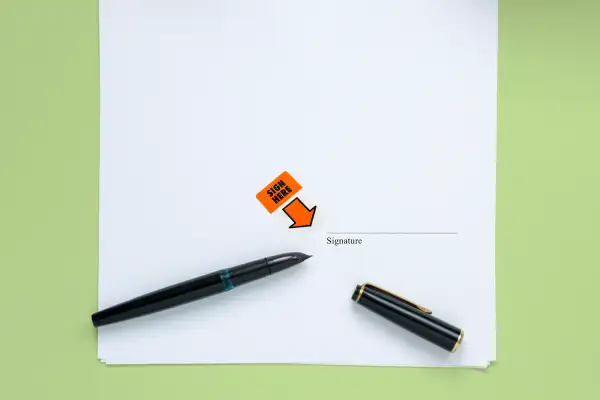9 Signs of a Bad Tax Preparer

If you're planning on hiring help this tax filing season, be careful who you trust with your sensitive financial information.
Each year taxpayers take a financial hit because they choose preparers who mislead them, commit fraud in their name, or make off with their refund money, the IRS has found.
To avoid being ripped off, the IRS says to watch for these nine red flags.
1. A tax preparer without a PTIN
Anyone who prepares tax returns for compensation is required by the IRS to have a valid 2015 preparer tax identification number, or PTIN. Without one, he or she is not legally allowed to do your taxes. You can look up any tax pro on the IRS's Directory of Federal Tax Return Preparers.
2. Asking you to pay a health insurance penalty directly to them
This is the newest scam unscrupulous tax preparers are pulling on clients, according to an IRS report released last month. Under the Affordable Care Act, most people who go without health insurance owe penalties to the IRS. Some preparers are telling clients they must pay the penalty, even when they have health coverage through Medicaid or a job, or qualify for one of the many available exemptions. The preparers request that clients pay the unnecessary penalty directly to them and pocket the money. If you do owe the IRS a penalty, it should only be made with your tax return or in response to a letter from the IRS.
3. A promise of a higher refund
Be wary of any tax preparer who boasts that he or she can get you a larger refund than the competition, or one who promises you a certain refund before reviewing your financial documents and past tax returns.
"You want to make sure your refund is obtained legitimately. If you get audited, you are on the hook," says Chi Chi Wu, an attorney with the National Consumer Law Center. "If the return contains fraudulent deductions, there can be serious consequences like being banned from taking the earned income tax credit in future years."
Read Next: How to Pick the Best Tax Preparer
4. A request that you to sign a blank return
You are legally responsible for all information on your tax return, regardless of who helps you prepare it. Signing a blank return is like signing a blank check—you're agreeing to terms you haven't seen.
You should also be careful to review all the paperwork a preparer asks you to sign. "We've seen disreputable companies that will give clients a form to sign that grants the preparer permission to file the return and for the refund to come to the preparer instead of the client," says Katherine Hutt of the Council of Better Business Bureaus. "A signed document takes precedent over a verbal denial, so even if you decide to go with a different tax preparer and walk away, they can still file for you."
5. Suggesting you direct deposit your refund into an account that isn't yours
A preparer might tell you that this is more convenient or that your refund will arrive faster, but it is prohibited by the IRS, for good reason. It's the easiest way to lose your refund entirely.
6. Fees based on a percentage of your refund
Ask a preparer how he or she sets fees before you sign on. Last year the average cost of hiring a professional preparer to file a 2014 return, including a Form 1040 with Schedule A and a state tax return, was $273, according to the National Society of Accountants.
Avoid pros who base their fees on a percentage of your refund. This creates an incentive for the preparer to take credits or deductions you aren't actually entitled to, the IRS has found. "A tax preparer who charges a flat fee gives you a more upfront price," says Hutt. "There is no incentive to beef up your refund."
7. Implied IRS endorsement
The IRS doesn't endorse any individual preparer. It does recognize certain credentials, such as CPA, attorney, and enrolled agent, and allows these professionals to represent clients before the IRS. While the enrolled agent license is issued by the IRS and the agency also grants records of completion to those who finish the Annual Filing Season Program, the IRS never recommends or endorses any single type of preparer or individual. No tax preparer can legally use the IRS's name or initials within his or her own name, or use the IRS or Treasury Department seal on advertisements.
8. Doesn't offer e-filing
Paid preparers with more than 10 clients generally must file electronically, according to the IRS. For maximum security the IRS recommends you e-file your return and have your refund directly deposited into the bank.
9. An offer to use your last pay stub
Tax preparers should want to see your records and receipts, as well as ask questions about your income and finances. Any preparer who files your return using your last pay stub instead of your W-2 is breaking IRS rules.
If you experience any of the above situations, contact the IRS and report the abusive tax preparer using Form 14157.
